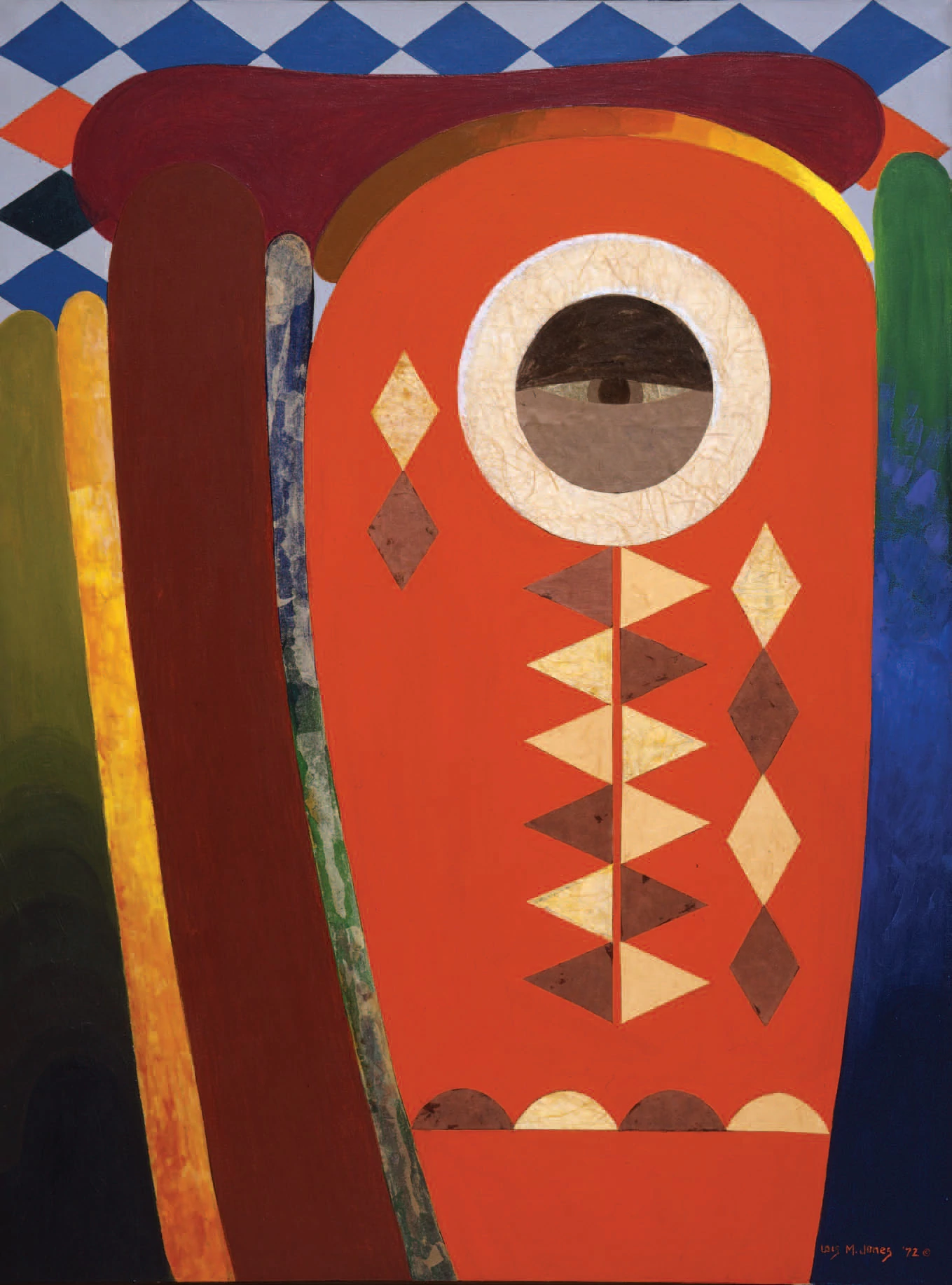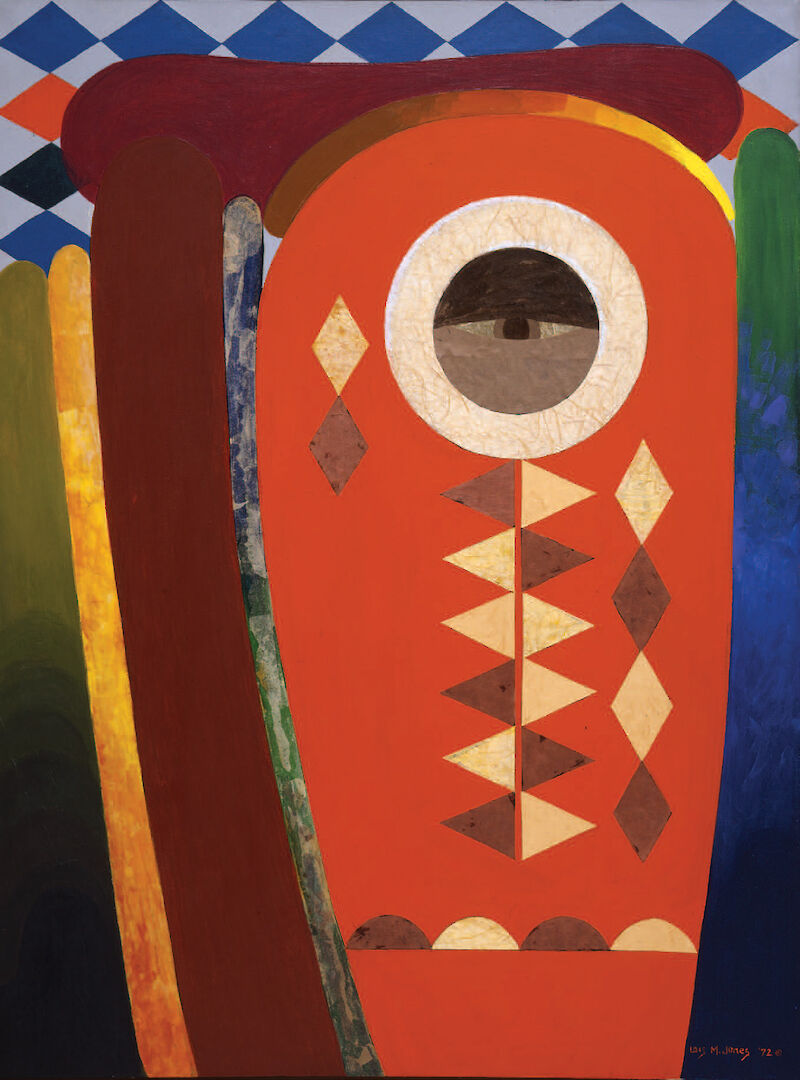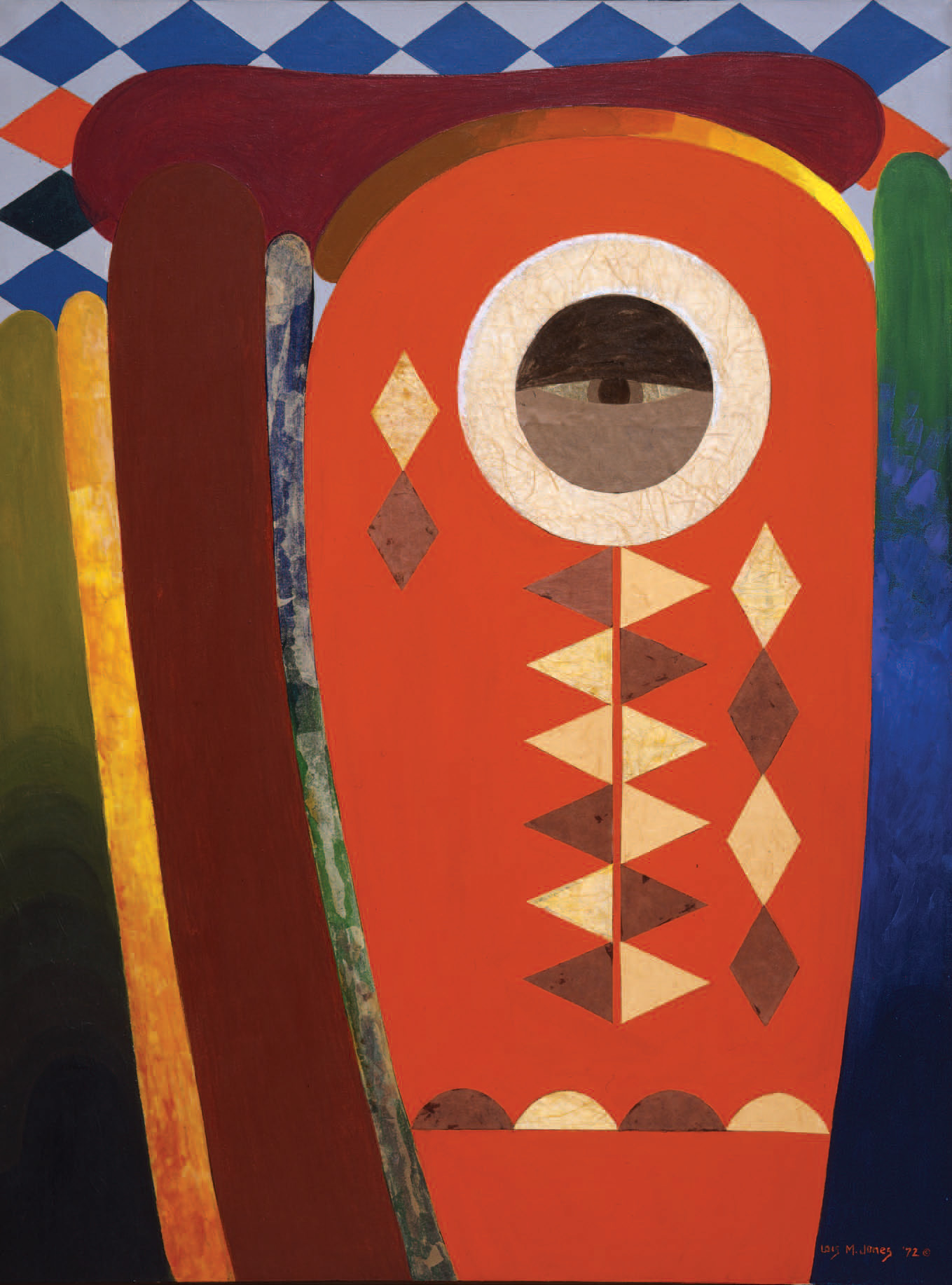


At first Ode to Kinshasa looks like an abstract artwork. A bright orange field ringed by warm earth tones and flecked with a diamond motif. But in the optical center of the image, a dark eye peers out from a white ring—here’s our clue.
Lois Mailou Jones was a global citizen and polymath artist. She studied textile and costume design while in school, as well as graphic design, drawing and art. Her work was influenced by summers spent in Harlem at the birth of its renaissance, and later by time in Paris, Haiti, and Africa.
Through her hugely varied career, Jones returned again and again to the motif of the traditional African mask. As a teenager she incorporated masks into costumes designed for the Denishawn dance school. She took a class on cultural masks in 1934 at Columbia University. In the late 30s in Paris, Jones turned masks into energetic works like Les Fétiches, and in 1972 she abstracted the mask almost completely in Ode to Kinshasa.
Between 1968 and 1970, Jones traveled to Africa for Howard University’s “The Black Visual Arts” research grant, visiting museums and collections in eleven countries, including the Democratic Republic of Congo, whose capital of Kinshasa, now called Zaire, is the namesake for this work. Ode to Kinshasa was created two years later, and shows her distillation of these influences. The diamond pattern hints at the geometric motifs common in the handwoven Kuba cloth distinct to central Africa, and the central shape resembles the oval cane shields common to the Congo region. Only the single eye transforms this abstracted celebration of color, pattern, and reference back into her lifelong muse—the mask.
...
Got questions, comments or corrections about Ode to Kinshasa? Join the conversation in our Discord, and if you enjoy content like this, consider becoming a member for exclusive essays, downloadables, and discounts in the Obelisk Store.
